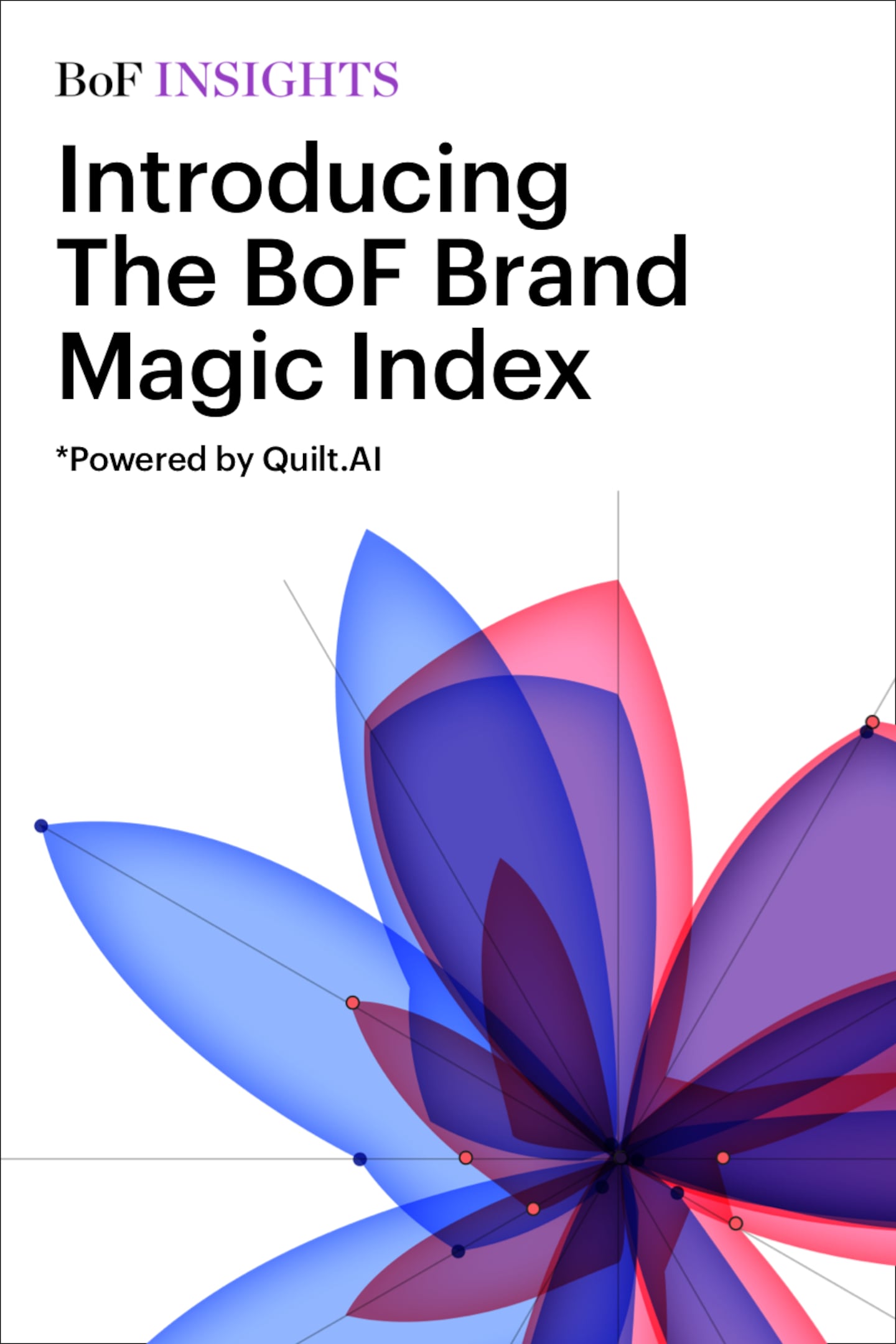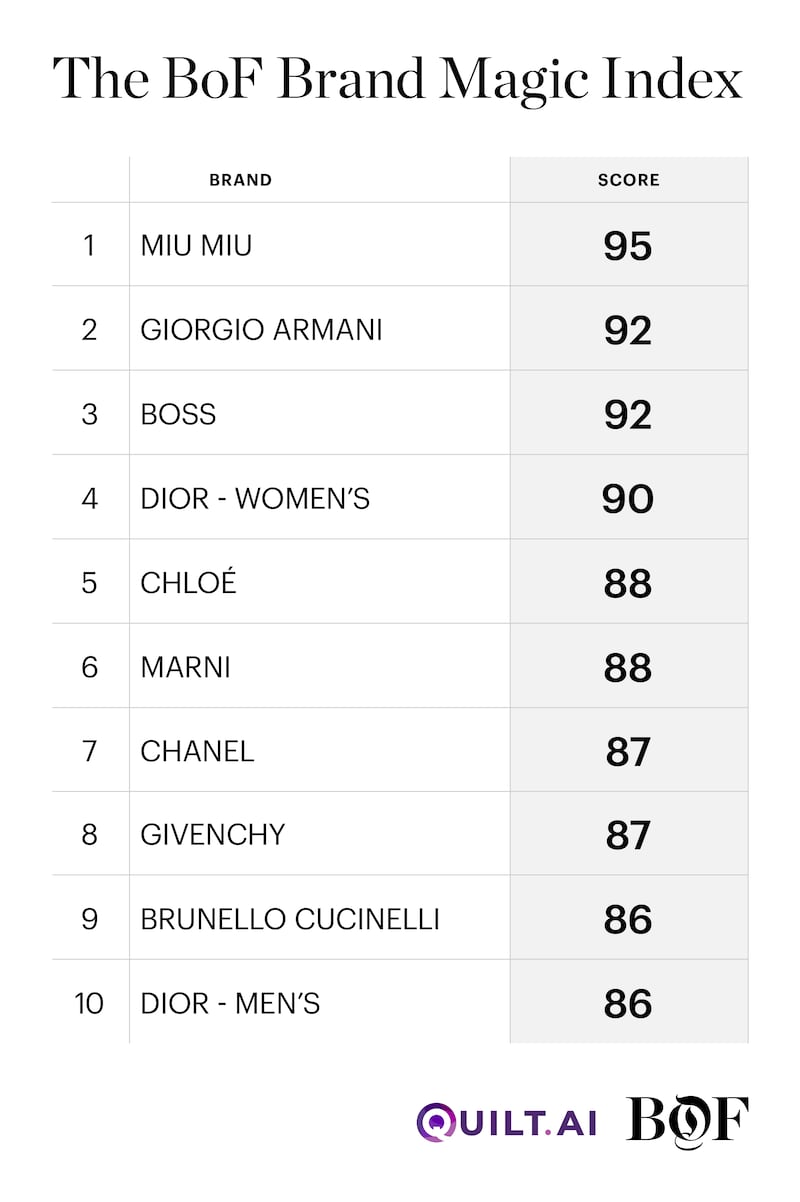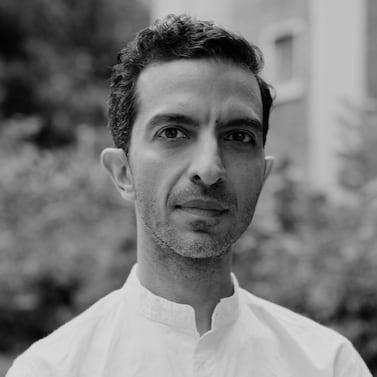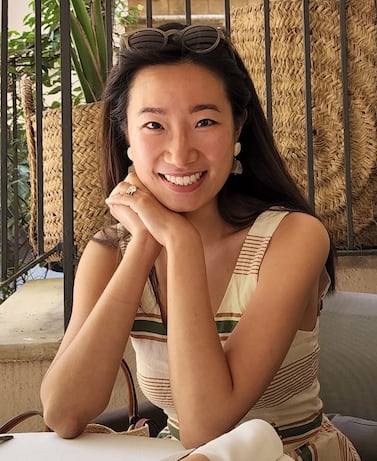
Agenda-setting intelligence, analysis and advice for the global fashion community.

Agenda-setting intelligence, analysis and advice for the global fashion community.

Dear BoF Community,
In 2007, BoF began as a blog in the same year that the iPhone launched and just as social media was about to explode into the global consciousness. BoF took part in a wave of innovation that irrevocably transformed the way we connect, communicate and engage with each other — and with the brands that we love.
Now, we are on the cusp of another wave of innovation. In the last year, the interest in AI has dramatically grown, spurred by the rise of ChatGPT, Dall-E, Midjourney and other generative AI tools.
But there is so much more to AI than this. We still do not know how it will evolve, and how it will change the way we live and work. All we know is that the underlying technology has reached an exciting inflection point in terms of application and adoption.
ADVERTISEMENT
Today, The Business of Fashion is excited to share our first experiment in using AI to solve a set of industry problems that we have been thinking about a lot. As the industry continues its inexorable shift from analogue to digital marketing channels, new marketing challenges — and opportunities — are emerging for fashion brands:
This means there is also more data than ever to understand what customers are saying and thinking about fashion brands. However, most of the data available in the market is still focused on the volume of the conversation — reach, impressions, engagements — and less on the quality of that conversation.
BoF Insights and Quilt.AI co-created The BoF Brand Magic Index as a novel, quantifiable and trackable metric to evaluate a brand’s marketing efforts by measuring the distance between brands and their customers. The Index is powered by proprietary AI models from Quilt.AI that are trained on hundreds of millions of cultural expressions to evaluate content shared by brands and their customers on social media.
We first assess the ideals and values that a brand conveys in its own content, leveraging 12 archetypes developed by Carl Jung, and then analyse if customers express the same archetypes when they share content about a brand.
Ultimately, Brand Magic is an AI tool that measures whether customers see a brand in the same way that the brand sees itself. We believe Brand Magic is one forward-looking performance metric into how a brand will perform. Our thesis is that most aligned brands will outperform over the long-term.
For our first iteration of this analysis, we have quantified a Brand Magic score for 50 global luxury and fashion brands. We analysed over 70,000 posts from around the world across Instagram, TikTok, YouTube and Weibo between May 1 to July 31, 2023. Brands that score highly in our Index are in lockstep with their customers, while brands at the opposite end of the spectrum are likely in transition.

The most aligned brands are in lockstep with their customers:
The least aligned brands are in transition:
ADVERTISEMENT
If you find these insights to be thought-provoking, BoF Insights and Quilt.AI can deliver detailed and proprietary analysis for your brand based on thousands of data points on social media, broken down by geography, demography and social media platform. If you are interested, please contact us at insights@businessoffashion.com.
For in-depth analysis across the 50 brands in the index, as well as more detail on the methodology, download the complete report on The BoF Brand Magic Index.
Imran and The BoF Insights Team

Imran Amed is the Founder, CEO and Editor-in-Chief of The Business of Fashion. Based in London, he shapes BoF’s overall editorial strategy and is the host of The BoF Podcast.

Rahul Malik is the Chief Growth Officer & Head of BoF Insights for The Business of Fashion. He is based in New York City.

Diana Lee is the Director of Research & Analysis at The Business of Fashion. She is based in London and oversees the content strategy and roadmap for BoF Insights.

Anushka Challawala is an Associate Director of Research & Analysis at The Business of Fashion (BoF) within BoF Insights and is based in London.

Hannah Crump is Associate Director of Strategy at The Business of Fashion. She is based in London and manages long-form content, including The State of Fashion and Reports.
Presidential nominees Kamala Harris and Donald Trump are expected to flood social media with ads targeting undecided voters, prompting brands to double down on alternative marketing channels in the lead up to holiday season.
The former Vogue editor and Amazon Fashion head, who has spent the past year at the helm of the WME-owned Art+Commerce, speaks to BoF about what drew her to the agency, the parallels between her previous roles and the state of the industry.
After a Taylor Swift-related surge in viewership and buzz last season, the NFL is partnering with New York-based Veronica Beard to capitalise on the fashion opportunity.
Retail media remains a reliable way to connect with consumers online. BoF explores how Zalando’s retail media unit is platforming its partners to achieve strategic brand goals at their annual marketing awards.